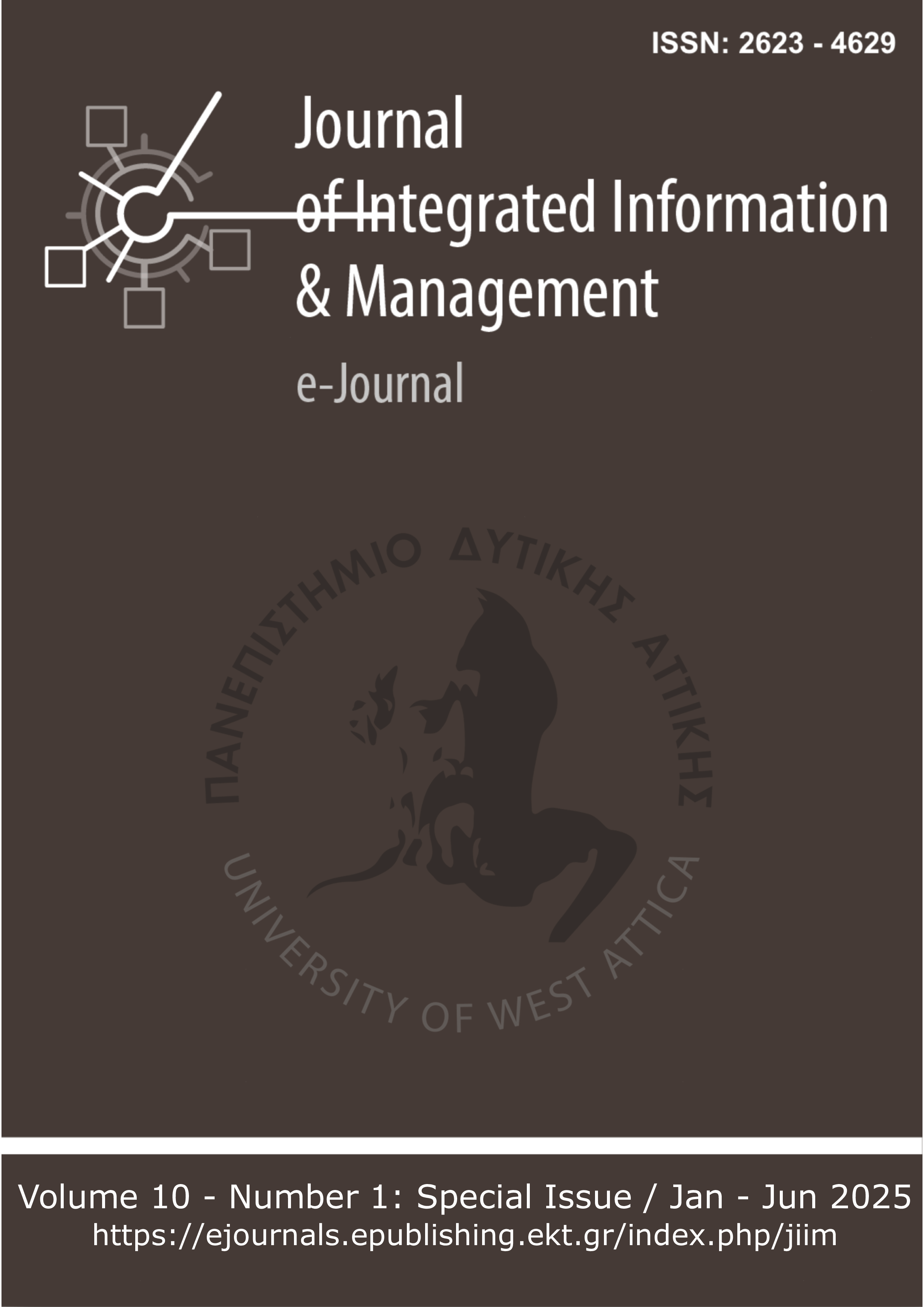Reassembling the Archive: Datafication and the Digital Afterlife of Early Public Officials in 19th-century Greece
Abstract
Purpose — This paper explores the epistemological implications of datafication in historical research through the case study of the BioState project, which digitally reconstructs the careers of early public officials in 19th-century Greece. The project demonstrates how archival traces are reassembled as structured data, creating an administrative archive that never existed in institutional form.
Design/methodology/approach — The study is based on the implementation of a semantic relational database using the Heurist platform, which models historical records as interconnected entities. Methodologically, the project integrates ontology-driven data modeling, archival documentation, and interpretive strategies to convert fragmentary sources into a coherent digital prosopographical system.
Findings — BioState highlights that datafication is not a neutral act of digitization but a performative reconstitution of historical meaning. The project reveals how archival traces, originally non-standardized and dispersed, are transformed into a queryable knowledge system.
Originality/value — This work contributes to digital historiography by advancing a theoretical and practical model for reconstituting absent or fragmented archives. It proposes that the digital archive should be seen not as a repository of the past but as a performative apparatus that enacts new forms of historical visibility. The concept of the "digital afterlife" is introduced to describe how bureaucratic traces acquire renewed significance within computational environments.
Article Details
- How to Cite
-
Chrysanthopoulos, C., Charamopoulos, L., Festas, M., Koniali, C., Liagka, M., Sarafis, V., Dimitropoulos, D., & Seirinidou, V. (2025). Reassembling the Archive: Datafication and the Digital Afterlife of Early Public Officials in 19th-century Greece . Journal of Integrated Information Management, 10(1), 8–18. https://doi.org/10.26265/jiim.v10i1.41266
- Section
- Research Articles

This work is licensed under a Creative Commons Attribution-NonCommercial 4.0 International License.
Copyright Notice
Authors who publish with JIIM agree to the following terms:
- Authors retain copyright and grant the journal right of first publication with the work simultaneously licensed under a Creative Commons Attribution Non-Commercial License that allows others to share the work with:
- An acknowledgment of the work's authorship and initial publication in this journal.
- Authors are permitted and encouraged to post their work online (preferably in institutional repositories or on their website) prior to and during the submission process, as it can lead to productive exchanges, as well as earlier and greater citation of published work.






